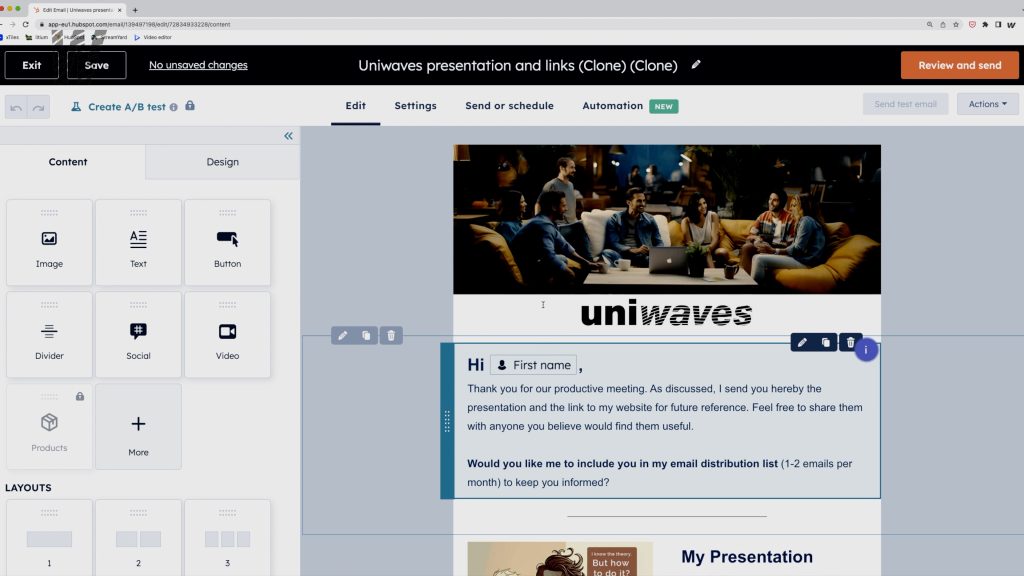
In this video, I will explain why I choose to use a CRM (Customer Relationship Management) system for my startups right from the beginning, instead of relying on Excel or simple tools until the scaling of sales starts.
1. I Use CRM for My Startups Because I Know How to Use It
The first reason I prefer a CRM is quite simple: I have the knowledge and skills to use it effectively. Having experience with a CRM allows me to leverage its functionalities and maximize its potential for my business.
2. I Want to Preserve My Customer Knowledge
Using a CRM allows me to collect and organize essential data and information. Whether it’s the communication history with customers, discussions, or any other relevant details, all the information is readily available for anyone in the future, be it sales people, support staff, or delivery personnel. This ensures a seamless flow of information within the organization and avoids the challenge of retrieving scattered data later.
This is very important when you do Customer Development phase in your startup.
3. Scalable Sales and Growth Preparation
A crucial aspect of using a CRM from the beginning is to prepare the company for growth. Co-founders usually forget the future and focus only to the present. By implementing and learning how a CRM works, I can be ready for the rapid growth when it starts. I can establish scalable sales processes and streamline operations, making it easier to handle increased customer interactions and manage sales activities efficiently.

4. Professional Sales Approach
Using a CRM helps me enhance the professionalism of my sales efforts. I can utilize various CRM features such as tasks, events, meeting scheduling, marketing emails, and customer newsletters. These tools enable me to stay organized, engage with customers effectively, and maintain consistent communication, resulting in a more professional sales approach.
5. Ease of Use and Learning Curve
Many people wonder about the requirements for using a CRM, especially if they are not yet familiar with such software. The good news is that starting with a CRM doesn’t require extensive technical expertise. If you know how to use web services like Google email, you can easily adapt to a CRM system. While it may take some time to learn all the features, you can begin by utilizing only few functions and gradually explore additional capabilities as your understanding grows.
Your steps to use CRM could be something like below:
- Customer contact information
- Sales tasks and reminders
- Calendar and meeting inviting
- Customer newsletter
- Email templates and communication automation
- etc.

6. Incremental Adoption and Time Investment
It’s essential to understand that implementing a CRM is a process that takes time. As a beginner, you can start with basic features such as contact collection, communication history tracking, and email templates. You don’t have to use every aspect of the CRM right away. By adopting the system in smaller increments, you can learn and adjust gradually, saving you from the overwhelming task of learning CRM systems when your company is experiencing rapid growth.
HubSpot CRM Recommendation for Startups
As for my personal CRM choice, I use HubSpot CRM and highly recommend it to new startups. HubSpot offers a free version, allowing you to get started with one user. As your business grows, you can easily scale up by adding more users to the CRM.
Sales Process and CRM in Startups
in Action To illustrate how a CRM can support your sales process, I discuss a typical B2B sales scenario in the video. I emphasize the importance of asking customers to subscribe to your newsletter during meetings, as this enables you to keep them engaged and informed about your services until they are ready to make a purchase. Additionally, I mention the significance of content marketing and leveraging CRM features to track customer engagement, plan sales efforts, and focus on active leads on the right time.
Demonstration of HubSpot CRM
In the video, I provide a glimpse of the HubSpot CRM interface and show examples of customer profiles and their engagement activities. By visualizing the CRM’s capabilities, viewers can better understand how it facilitates effective communication, tracking, and engagement with prospects and customers.

Conclusion – Why CRM for Startups
In conclusion, incorporating a CRM (Customer Relationship Management) system into your startup early on provides significant advantages. A CRM allows for efficient data management, prepares your business for growth, enhances sales professionalism, and minimizes the learning curve. HubSpot CRM is recommended for startups, offering a user-friendly and scalable solution. By utilizing a CRM, you can establish a strong foundation for customer relationships and position your startup for long-term success.

“Let’s Create the Better Future Together.”


